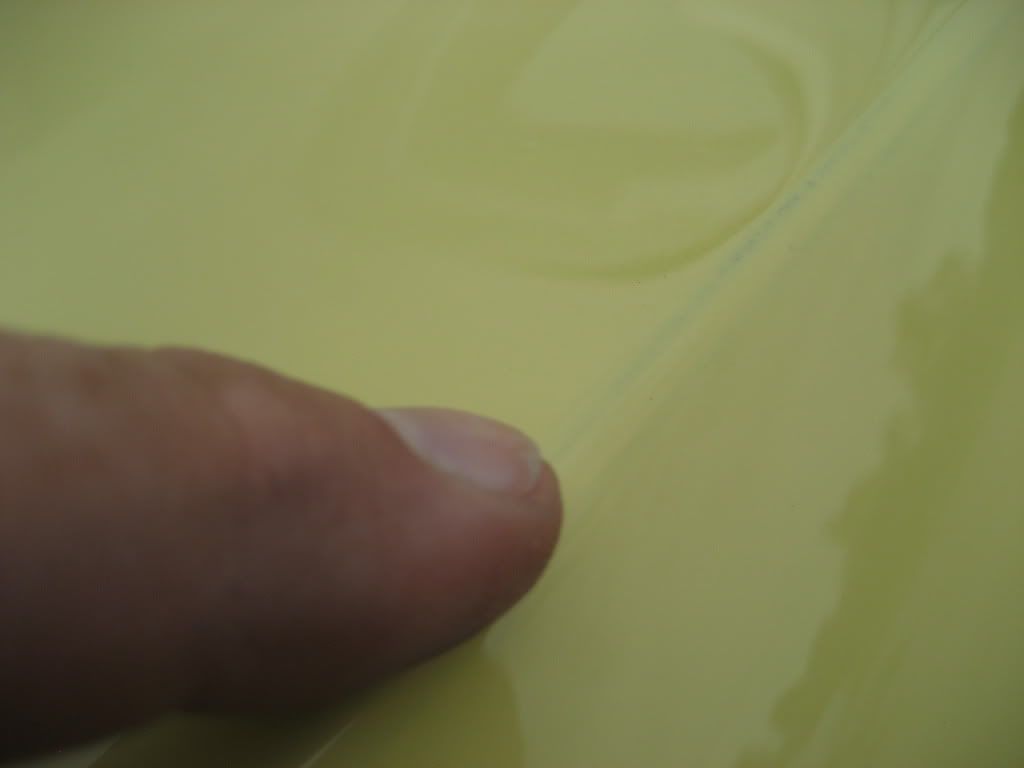imported_RaskyR1
New member
This thread was created to warn others detailers, novice, experienced, and even the pros.
So I was working on a new Honda Element last Sunday, only very minor correction needed. The plan of attack was to use M205 via the Flex and a polishing pad. There was however a few RIDS that needed M105 and the rotary. The front of the car also had some sort of white over spray on it and since I had my rotary out I thought I?d try and remove what the clay had not. I was running my Makita on a speed of 2 with M105 and a PFW pad. I applied medium pressure and with in seconds the paint wrinkled!!! :scared:
Yes, even someone with 20 years experience running a rotary can mess up now and then?just sucks it happened to me.
I?m really kicking myself in the butt over this one because I had seen the warnings in threads before about this so called ?paint wrinkle?, which can occur when polishing plastic bumpers with a rotary buffer. I honestly didn?t give it too much thought since I have been doing this for so long and have never had it happen to me before.
In talking with others it seems that the flex agent added to the paint for plastic pieces, makes them much more susceptible to paint wrinkle. I?d more inclined to say it?s more of a problem on the newer cars, since I?ve never had this happen before, but I really can?t say for sure?paint really has been changing a lot over the years as the EPA clamps down on auto manufacturers.
For those who are wondering, I dropped the vehicle off this morning to have the bumper cover repainted, and the owner should have it back sometime tomorrow. My father works for one of the elite body shops in the twin cities, so the car will definitely be in good hands.
I?d also like to say that the owner has been very understanding with this whole deal, which definitely makes things a little easier on me. I also feel better knowing I haven?t lost his business and that he still wants me to do his wife?s car and has also referred me to some others.
Pic of the paint wrinkle?

So I was working on a new Honda Element last Sunday, only very minor correction needed. The plan of attack was to use M205 via the Flex and a polishing pad. There was however a few RIDS that needed M105 and the rotary. The front of the car also had some sort of white over spray on it and since I had my rotary out I thought I?d try and remove what the clay had not. I was running my Makita on a speed of 2 with M105 and a PFW pad. I applied medium pressure and with in seconds the paint wrinkled!!! :scared:
Yes, even someone with 20 years experience running a rotary can mess up now and then?just sucks it happened to me.
I?m really kicking myself in the butt over this one because I had seen the warnings in threads before about this so called ?paint wrinkle?, which can occur when polishing plastic bumpers with a rotary buffer. I honestly didn?t give it too much thought since I have been doing this for so long and have never had it happen to me before.
In talking with others it seems that the flex agent added to the paint for plastic pieces, makes them much more susceptible to paint wrinkle. I?d more inclined to say it?s more of a problem on the newer cars, since I?ve never had this happen before, but I really can?t say for sure?paint really has been changing a lot over the years as the EPA clamps down on auto manufacturers.
For those who are wondering, I dropped the vehicle off this morning to have the bumper cover repainted, and the owner should have it back sometime tomorrow. My father works for one of the elite body shops in the twin cities, so the car will definitely be in good hands.
I?d also like to say that the owner has been very understanding with this whole deal, which definitely makes things a little easier on me. I also feel better knowing I haven?t lost his business and that he still wants me to do his wife?s car and has also referred me to some others.
Pic of the paint wrinkle?


